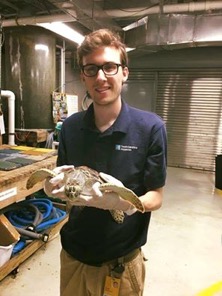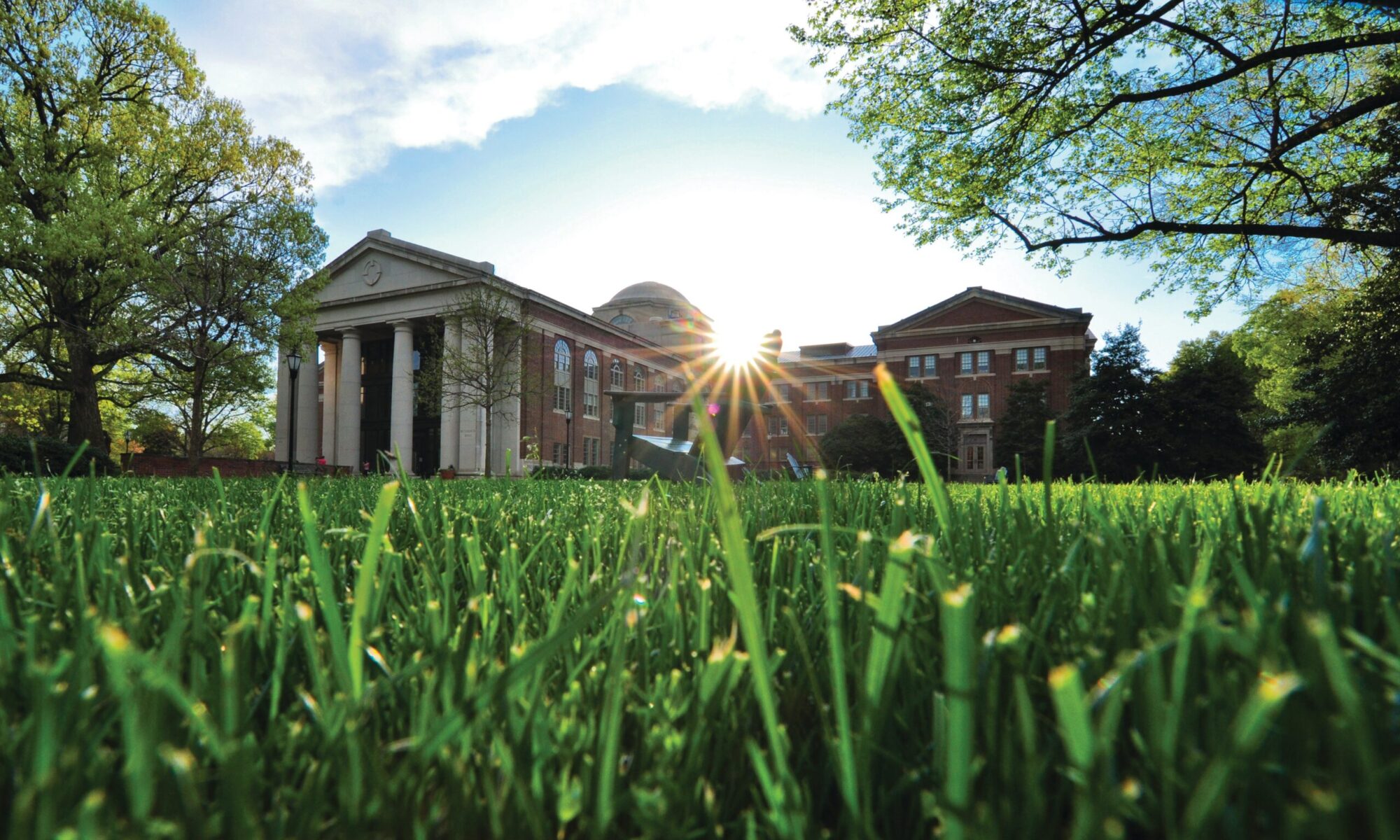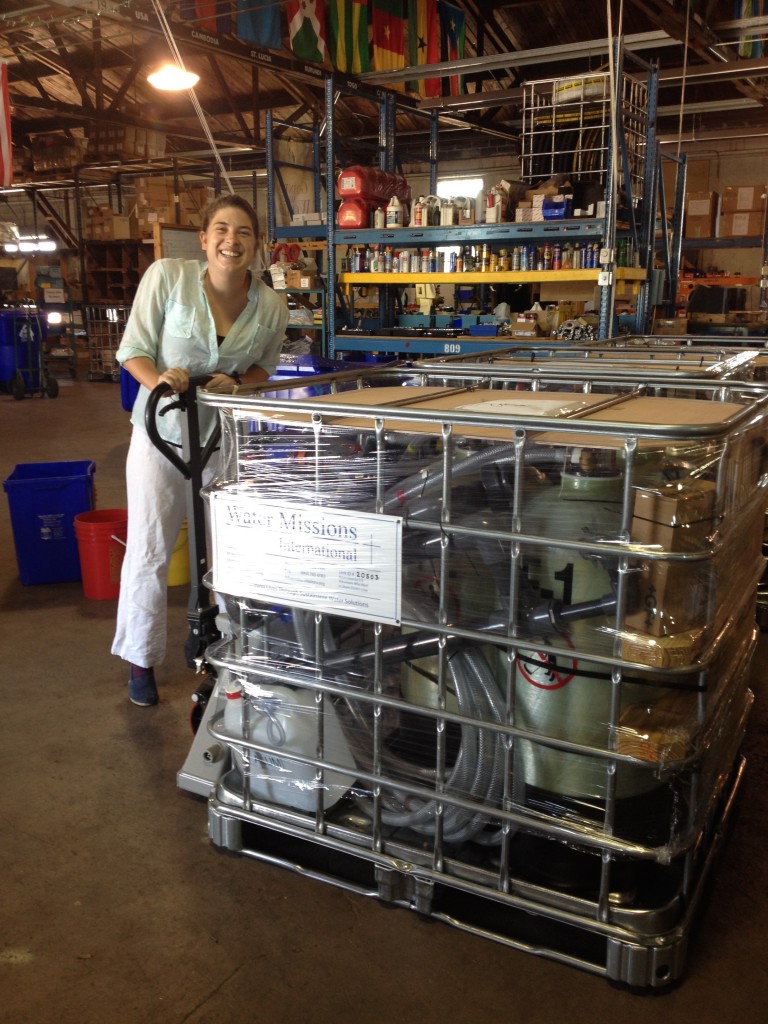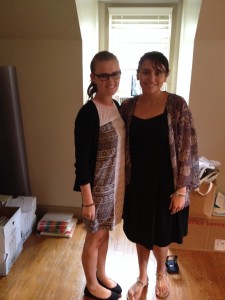Original posted contributed by Aren Carpenter ’18, recipient of the Jolley Foundation Internship Grant for summer 2017.
This summer I had the amazing opportunity to volunteer at the South Carolina Aquarium in Charleston thanks to a Jolley Foundation grant. I spent about half of my time working in the Sea Turtle Rescue Hospital that treats stranded, injured, and ill sea turtles from the entire east coast. It was an incredibly productive summer for the hospital this year; we treated more than 30 sea turtles and were able to release several just in the time that I was there. There are few experiences more rewarding. The staff and volunteers have such passion for these animals and it was a real pleasure being able to work with them to make a real difference for these turtles. I was involved with the daily care (feeding, cleaning, medical procedures, etc.) of the sea turtles and I was the primary caregiver for 12 terrapins, an estuarine turtle that I was using for research.
Terrapins are near threatened in several South Carolina populations and my research allowed me to study their interactions with crab traps, a leading cause of their  declines in the area. I conducted a series of tests on these terrapins and I am planning to submit my findings for publication later this year! Hopefully, my research can help mitigate terrapin deaths in the future. My previous exposure with terrapins also allowed me to start a biweekly terrapin educational program at the aquarium geared for younger children and teenagers. I was told by several of my supervisors that many guests commented that they loved the chance to have hands-on experiences with terrapins, so I believe it was a successful endeavor! As one of my professors used to comment, ‘you never know when one experience, however brief, could inspire a kid to be the next biologist or vet or scientist’. I’d like to think that I was allowing the thousands of kids I talked with to have such an experience.
declines in the area. I conducted a series of tests on these terrapins and I am planning to submit my findings for publication later this year! Hopefully, my research can help mitigate terrapin deaths in the future. My previous exposure with terrapins also allowed me to start a biweekly terrapin educational program at the aquarium geared for younger children and teenagers. I was told by several of my supervisors that many guests commented that they loved the chance to have hands-on experiences with terrapins, so I believe it was a successful endeavor! As one of my professors used to comment, ‘you never know when one experience, however brief, could inspire a kid to be the next biologist or vet or scientist’. I’d like to think that I was allowing the thousands of kids I talked with to have such an experience.
In all, my summer was everything I hoped it would be. I can’t say enough how thankful I am to the Jolley Foundation for allowing me to expand my horizons, if you will, by exploring new career paths and making a difference in the lives of turtles and aquarium goers alike this summer.






